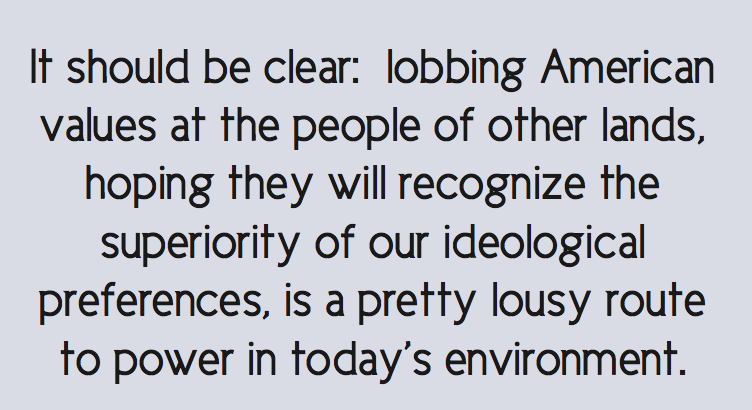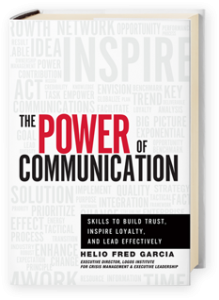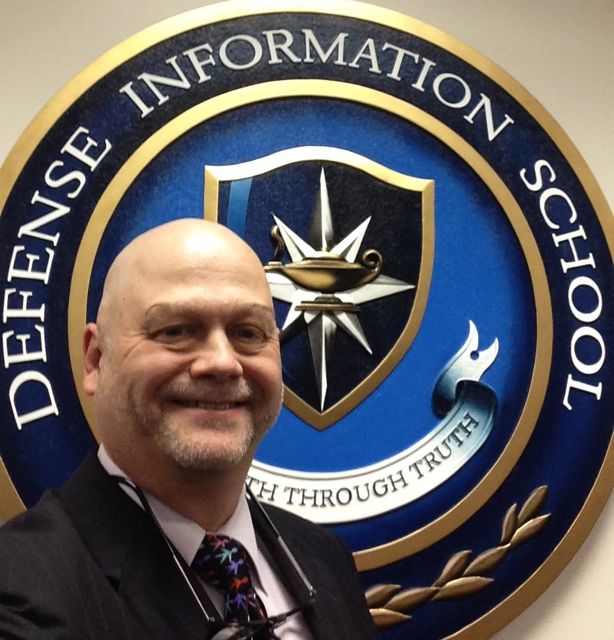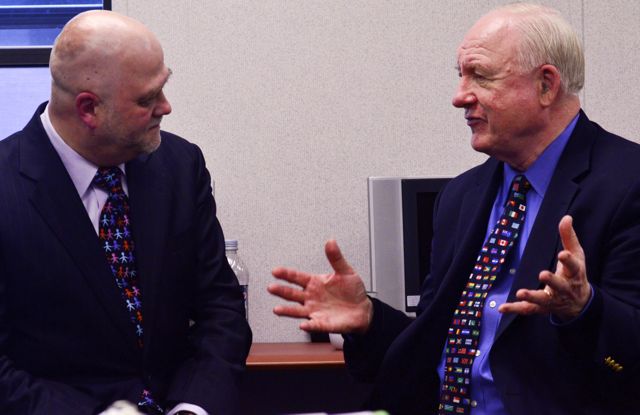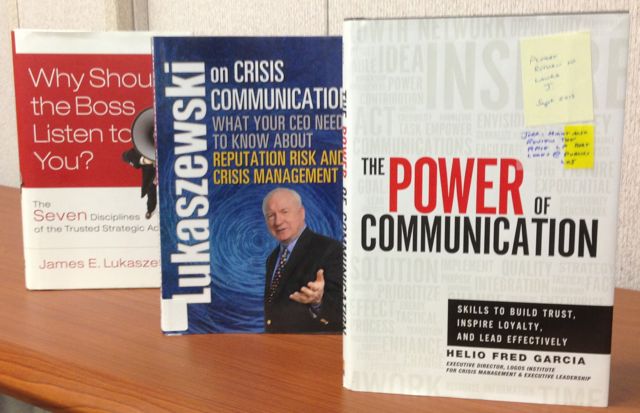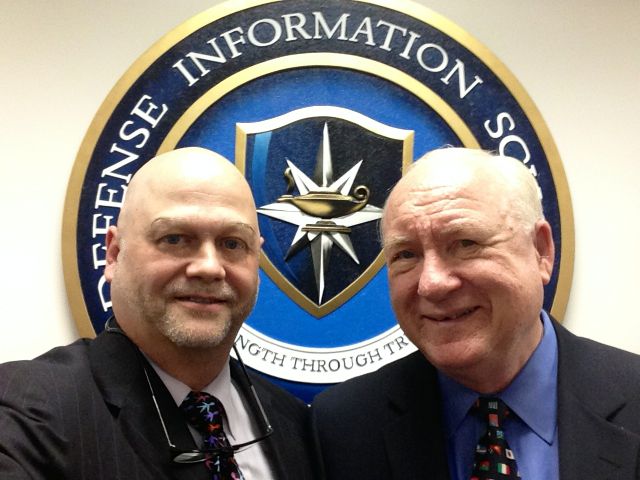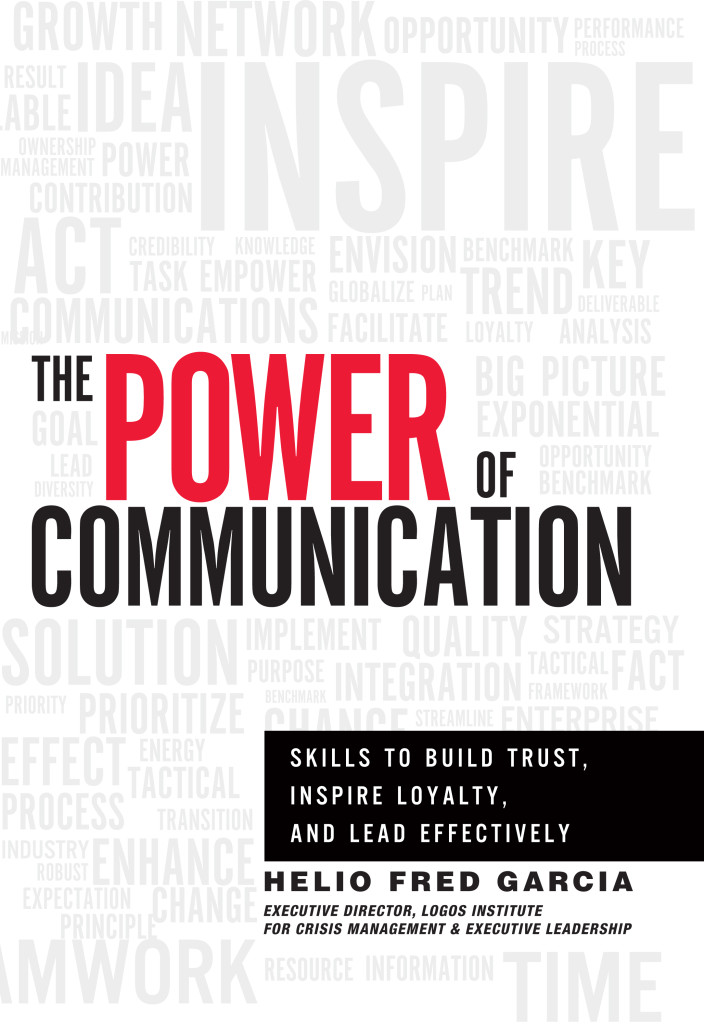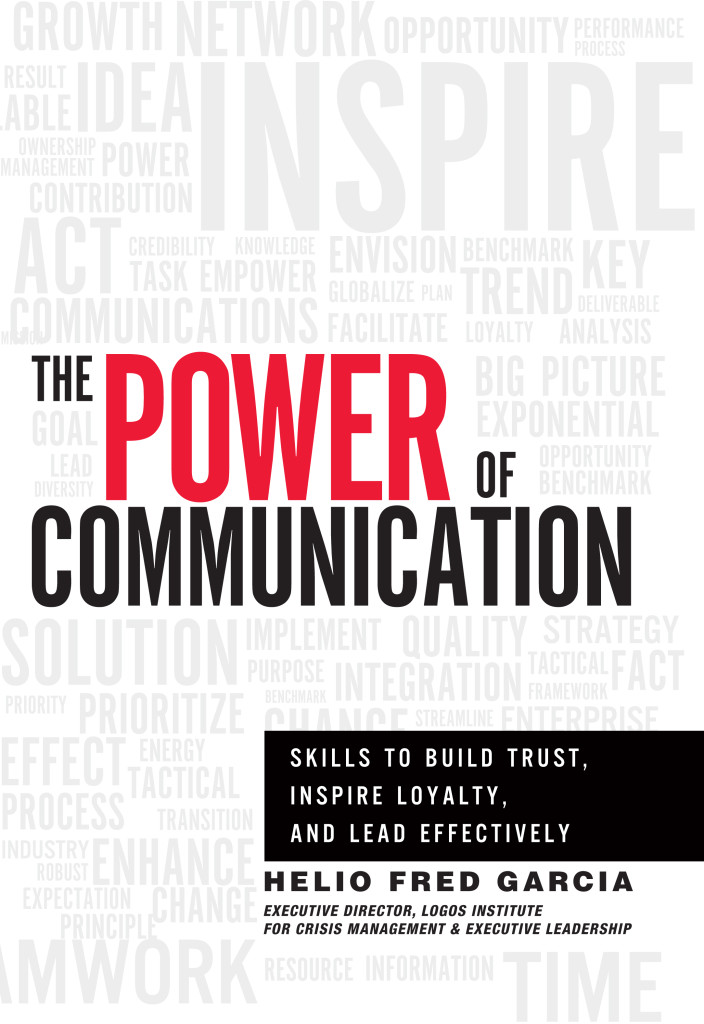Communication has power. But as with any powerful tool, if misused it can easily be dissipated or cause self-inflicted harm.
The Harvard University Distinguished Service Professor, and former Dean of the Kennedy School of Government, Joseph Nye, defines power as the ability to get what you want. In his 2001 book The Paradox of American Power, Nye distinguishes between hard power – military force and economic might – and soft power – attraction. He says that the paradox is this: the more a nation uses hard power, the more it dissipates soft power. But it can use soft power all it wants without in any way diminishing its hard power.
Power Shifts
In his 2011 book, The Future of Power, professor Nye describes a power shift from state players to ordinary people. This power shift changes the game for all concerned: for corporations, for NGOs, for governments, and for all others. The power shift is this: what used to be the exclusive domain of governments, militaries, and corporations, are now the domain of regular people.
In a TED Talk at Oxford University he put it this way:
“Computing and communication costs have fallen a thousand-fold between 1970 and the beginning of this century… If the price of an automobile had fallen as rapidly as computing power you could buy a car today for five dollars. …In 1970 if you wanted to communicate from Oxford to Johannesburg to New Delhi to Brasilia to anywhere, you could to it. The technology was there. But to do it, you had to be very rich. A government. A multi-national. A corporation…. But you had to be pretty wealthy. Now, anybody has that capacity… So capabilities that were once restricted, are now available to everyone. And what that means is not that the age of the State is over, the State still matters, but the stage is crowded.”
We saw that power shift in 2011 when the Chinese government initially lied about a high-speed train crash and its victims. But Chinese citizens took to the Chinese versions of social media, Sina Weibo and Renren, and embarrassed the Chinese premier into coming clean.
Information as an Instrument of Power
A new contribution to this discussion comes from Dr. Amy Zalman, in a recent policy piece in Perspectives. Dr. Zalman, who is currently the Department of Defense Information Integration Chair at the National War College, grapples with a paradox about information as an instrument of power.
In “Getting the Information Albatross Off Our Back: Notes Toward an Information-Savvy National Security Community, Dr. Zalman notes, “while the effects of the information revolution on national security deepen, the American ability to act powerfully in these new circumstances remains shallow.”
She says,
“We are virtually drowning in information —the words, images, and sounds through which humans communicate meaning to each other via various technologies, from the human voice to remote sensors. Yet, the United States wields ‘the information instrument of national power’ — as national security parlance would have it — poorly.”
She observes that rapid advances in communication technology have fundamentally changed society – not only relations between citizens and governments, but for all forms of institutions among themselves, and among those who matter to them. She says,
“These changes are so profound as to have chipped away at the bedrock of the international system, the sovereign state. Once considered inviolable, the autonomous boundaries of states are now transgressed daily by people, news, and ideas set in motion by new technologies.
Yet no such revolution has occurred concerning the United States’ priorities when it comes to using informational power. Both in normative documents, such as the National Security Strategy, and in actual practice, the United States appears to think little of informational power as a strategic instrument.”
We Need a Mindshift to Accompany the Power Shift
Zalman argues that incremental reforms will not resolve the basic problem: The United States organizes information activities on the basis of a Cold War mindset.
“During the Cold War, it made good sense to think of the informational ‘instrument’ of power as the capacity to inject American values into populations whose governments and/or technological advancement limited their access to outside ideas.”
Hence the overwhelming success then of Voice of America and Radio Free Europe. They projected American voices to where they could not otherwise be heard.
But Dr. Zalman admonishes that we are no longer in the Cold War.
“Soon, almost everyone in the world will be able to receive as well as disseminate informational content. There are few populations that are unknowingly isolated from others’ media. The ideological landscape is variegated and complex, not bipolar.”
Consider the failure of US public diplomacy in the aftermath of 9/11:
“The failure of the Cold War/Industrial Age model should be clear from the informational debacles of the ‘global war on terror.’ In the decade following the 9/11 attacks, just as in the Cold War, the United States sought to “tell its story” to Muslim publics that we imagined not only as isolated from information about the United States, but as geographically secluded in Muslim majority countries.
The effort backfired among not only satellite TV- saturated cosmopolitans in Arab and Western capitals, but also provincial Afghans who in some areas had not heard of the 9/11 attacks. In both cases, the mistake was the same: the United States failed to note that people everywhere already have their own narratives, their own histories, and their own ways of articulating even the values we universally share.”
Prescriptions for Effective Use of Information as an Instrument of Power
Dr. Zalman calls for a new conceptual framework and a new alignment of resources to mobilize power within that framework. It consists of the following:
- Retire the Cold War/Industrial Age Information Model.
- Instill a New Framework of Information Power. Using information powerfully today requires the ability to
- “Act in accordance with the fact that actions, as well as intended communications, relay meaning to others
- Use different kinds of communicative media to distribute and collect information
- Develop and sustain networks required to tackle multi-disciplinary issues
- Engage other stakeholders by aligning goals and interests on an issue-by-issue basis
- Navigate the symbolic territory of adversaries, friends, and key stakeholders. By ‘symbolic territory,’ I mean that landscape of historical memory, stories, images, figures of speech, and metaphors through which people understand and relate their experiences.”
3. The education of professional senior leaders should reflect and promote a new framework of thinking.
4. The United States Government should organize informational activities to generate informational power.
“Today, we need a new model that reflects the fact that all government actions and activities are potentially communicative, and that this situation poses both risks and opportunities. Every agency should house an office of informational power to develop proactive communications risk strategies, to exploit opportunities for mutual engagement— whether military exercises or agricultural exchanges— and to coordinate with other USG agencies.”
Lessons for Leaders and Communicators in Business and Other Realms
Whether at the national level or at the level of individual business enterprises, NGOs, not-for-profits, and other organizations, we need to think differently about telling our story.
It’s not about telling our story. It’s about connecting with our stakeholders, and having them share in our story. We need to be as good at listening as at sending messages. We can’t direct until we connect. Or as I say in The Power of Communication, we can’t move people until we meet them where they are. But that means knowing where they are; caring about where they are; and mobilizing resources to actually connect.
Your feeback welcome.
Fred




